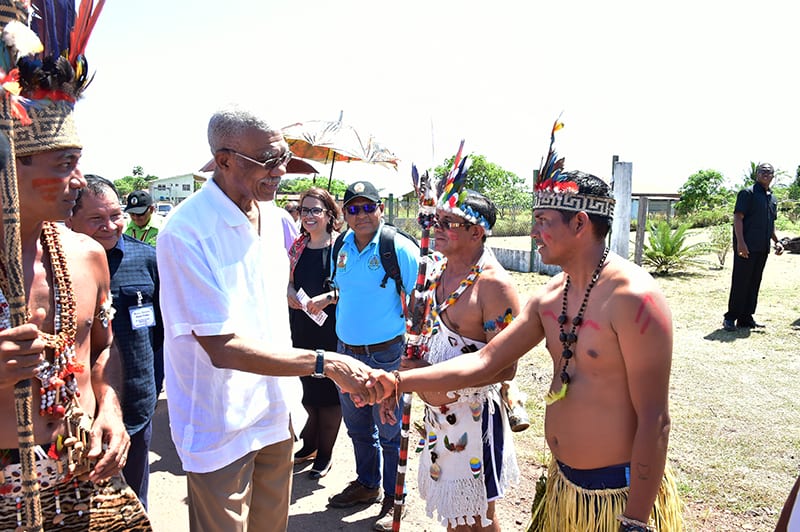Villagers in the remote Rupununi – an area located in the south-west of Guyana bordering the Brazilian Amazon – are being urged to harness the power of the sun to push economic diversity. The charge was given by President David Granger in a feature address at the opening of this year’s Rupununi Regional Heritage celebrations, being held at St. Ignatius Village.
According to a press release from the Ministry of the Presidency on Wednesday, the Guyanese leader called on the people of the Rupununi to reflect on their accomplishments over the years and look towards enhancing their village economies.
“It is the economy which keeps society going,” he stated while adding that “our economic survival is most important. Every society is determined by the way it makes its living. If the quality of life is to improve hard decisions have to be made,” he stated.
A key factor in driving the local economy, he pointed out, is energy, which the Rupununi region has vast potential to produce by way of solar power.
“In all of this we need energy. We can’t do this without energy. Energy now is becoming more accessible…the amount of sunshine you get from the Rupununi on a daily basis exceeds that in any other part of the country. It means that the use of solar energy is feasible not just at the household level but at a community level – to power the schools, medical centres and factories,” he told villagers.
“We have to take energy seriously,” the President urged, pointing out that the production of energy will give rise to a number of industries. “Energy is the key and your leaders must seek sources of energy at any cost because energy is going to propel the economy,” he said.
Although the South American country is set to become a major oil producer in less than two years, the long-term vision of the country hinges on the concept of a green economy. It is anticipated that a percentage of the billions of dollars expected from oil production will go towards funding this initiative.



